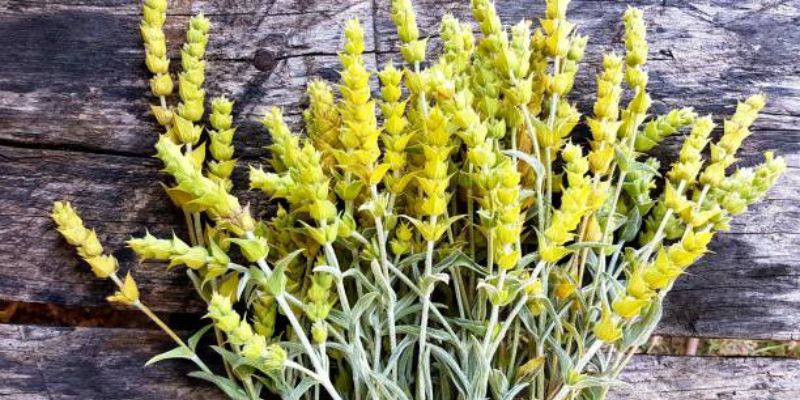Mountain tea is a particularly popular herb in all Mediterranean countries. Its nutritional value is remarkable and along with its unique taste it contributes to the hydration of the body. Its scientific name is SIDERITIS (which comes from the Greek word iron –makes the body as strong as iron). In recent years it has been the subject of intense scientific study, thanks to its various soothing properties. Traditionally it is preferred for its beneficial contribution to treatment of colds, respiratory problems, indigestion and gastrointestinal disorders.
Properties
The scientific studies that deal with it are numerous and the number is constantly increasing. The Greek mountain tea – “sideritis” – an incredible range of flavonoids, catechins of monoterpene diterpenes, triterpene acids, phenylpropenes, sterolins, iridoid essential oils, curcumin and caryophyllene. Many modern researches come to substantiate the properties of these ingredients, which seem to be valuable for the human body. Specifically:
- Osteoporosis. Protects against the loss of bone density / enhances the mechanical strength of bones
- According to a study by the Research Center for Neurological Diseases of the University of Magdeburg, it was concluded that Greek mountain tea – “sideritis” – has unique beneficial properties that act against the disease. It was exhibited that the “sideritis scadica” species of Olympus affects the inhibition of reuptake of brain substances that conducted the transfer of messages from one brain cell to another (substances that are substances that affect the reuptake of brain substances that process the transfer of messages from one brain cell to another (substances that are called neurotransmitters).

It was found that its daily regular consumption for 6 months contributes to the regression of symptoms to the levels that the disease 9 was months ago, and then stabilizes the patient’s condition.
- Hypertension: so far studies demonstrating the benefits to blood vessels and lowering blood pressure levels are reported in animals. There are very serious indications that Greek mountain tea -sideritis- contributes to the enhancement of cardiac health.
- Digestive system The Greek mountain tea “sideritis” was traditionally used in Greece to enhance the health of the digestive system and relieve indigestion and stomach ache. Research shows that it contributes to the reduction of inflammation of the gastrointestinal tract, due to its content in phenols and antioxidants.
- Antioxidant, anti-inflammation, anxiolytic action: The consumption for 6 weeks of Greek mountain tea “sideritis” was detected to enhance the antioxidant defense of areas of the brain. In addition, it seemed that it fights anxiety, that is, it has anxiolytic action, but without the side effects observed in all anxiolytics of plant species
- Antimicrobial: Contains many essential oils with antimicrobial activity, analogous to the antibiotics ampicillin and amikacin, due to its content in carvacrol
- Antianemia : contains iron
- Anti-aging : antioxidant ingredients
- Antispasmodic
- Diuretic
- Good kidney function
- Preventive against the appearance of a cataract
- Strengthens the immune system
- It treats colds , nasal congestion, respiratory problems and persistent cough.
- It does not contain caffeine – it can be consumed in sufficient quantity at all hours and by all ages.
- Does not exhibit known side effects.
*The higher altitude that herbs are collected from, the better , delicious and “stronger” they are. Greece has 47 mountains with a height of over 2,000m, 105 mountains between 1,500m-2,000m and 155 mountains between 1,000m-1,500m. The mountains below 1,000m have not been counted.
*Although herbs are generally considered safe and offer many benefits, there are also side effects under certain conditions. Some beverages are not recommended in cases such as pregnancies, breastfeeding because of the high levels of volatile compounds they contain. Generally, in cases of serious diseases, consult your doctor and not consider the decoction of the herb as a medicine or a means of treatment.


